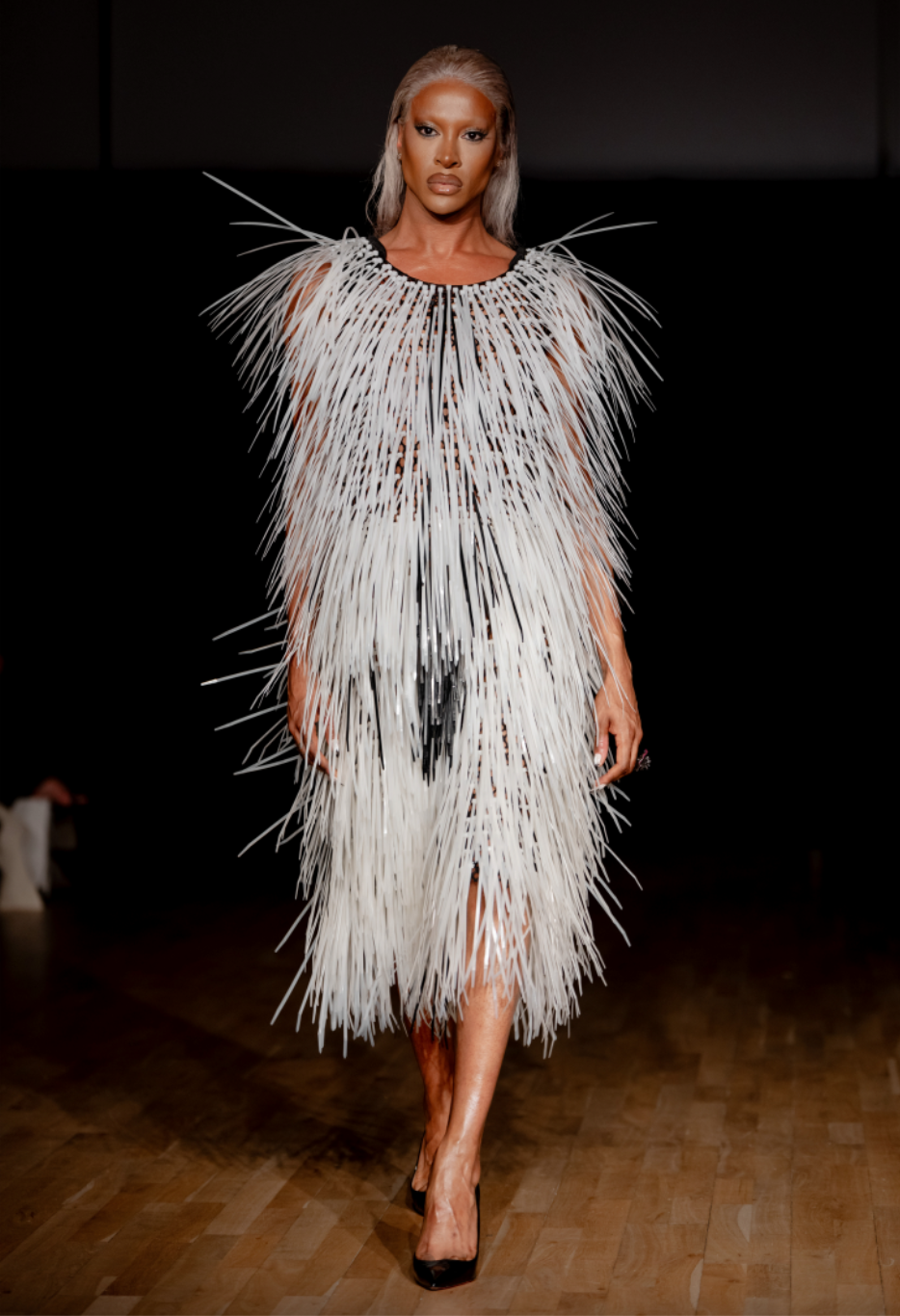PoetLab AW25: Where Poetry Meets Protest
Flashing lights cut through the darkness like artistic declarations, illuminating a runway where rebellion found its voice. At PoetLab's AW25 "Gentle(wo)man" presentation during London Fashion Week, designer Giuseppe Iaciofano transformed the conventional fashion space into a theatrical manifestation of his anxieties about our fractured world—a visual dialogue where clothing became both armor and protest.
The collection draws inspiration from Dadaism's ready-made movement, yet pushes further into territory where gender fluidity isn't merely suggested but celebrated. Oversized batwing shapes defied gravity, reconfigured into asymmetrical forms that photographed like architectural studies rather than garments. Each frame captured a moment where minimalism collided with controlled chaos, the camera lingering on raw edges and unexpected embellishments that seemed to whisper rather than shout their rebellion.
"I want to inspire people that have really a dream," Iaciofano shared backstage, his voice carrying the same quiet intensity as his collection. "To be a younger designer to put this show up is very hard. I want to tell them not to give up for what you have, because it's very important if you follow your dream."
The sonic experience proved as compelling as the visual—garments rustled and clicked as models moved, wooden elements meeting plastic, beads creating a percussion that punctuated each look. Through the lens, these details transformed into intimate portraits of craftsmanship, the camera capturing what the eye might miss in the theatrical spectacle—hands that had meticulously repurposed deadstock fabrics and deconstructed shirts, breathing new life into discarded materials.
Sustainability formed the backbone of the presentation, with recycled plastic elements catching light in ways virgin materials never could. "I use only the deadstock of fabric," Iaciofano explained. "I go to a laundry and use their old stock of shirts. In this case, we optimize, we don't chuck away anything."
The diversity of models—including drag performers who embodied the collection's rejection of binary constraints—created a visual manifesto where clothing transcended traditional boundaries. Target-like imagery on several pieces spoke directly to Iaciofano's anxiety about current global conflicts, each circular motif photographing as both bullseye and protection.
"Everybody has to be inspired by poetry," Iaciofano said of the brand's name, PoetLab. "This show is when I was reading a book and saw this cover with an old man and just a woman in the background looking in black clothes. I did the reverse this time—I make the man look like a woman dressed as non gendered."
As the final model disappeared behind the curtain, what remained wasn't just the memory of clothes, but the image of Iaciofano's vision—a world where fashion serves as both personal narrative and political statement, where "inclusivity-ethical," as he puts it, "is one word." Through the photographer's lens, PoetLab's collection wasn't just seen; it was witnessed.
Article by Aaayush Anima Aggarwal, Contributor, PhotoBook Magazine
Photography by @marcusartelt and @mox.magna
Tearsheets by Robin Chou, Graphic Design Intern, PhotoBook Magazine









